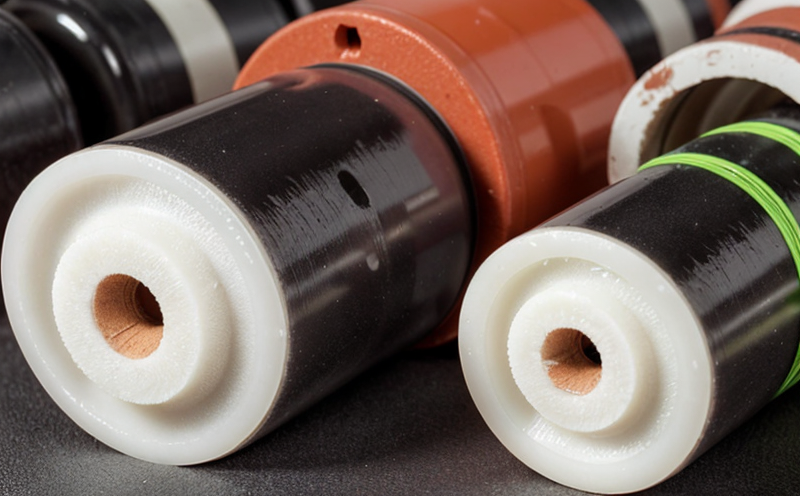Impact of solvent resistance on adhesion strength
The Unseen Force Behind Adhesion Strength Understanding the Impact of Solvent Resistance
In the world of materials science and engineering, adhesion is a crucial property that can make or break the performance of a product. Adhesion refers to the ability of two surfaces to stick together, which is essential for various applications such as bonding, coating, and assembly. However, not all adhesions are created equal, and one critical factor that affects adhesion strength is solvent resistance.
Solvent resistance, also known as chemical resistance or solvent exposure, refers to a materials ability to withstand the effects of solvents without compromising its adhesive properties. In other words, it measures how well a material can resist the absorption and degradation caused by various solvents, including water, oil, fuels, and cleaning agents.
At Eurolab, our team of experts understands the importance of solvent resistance in ensuring the long-term performance and reliability of materials and products. Our laboratory services focus on providing accurate and reliable testing and analysis to help businesses like yours understand the impact of solvent resistance on adhesion strength.
Why Solvent Resistance Matters
Solvent resistance is a critical consideration for various industries, including
Aerospace Adhesives used in aerospace applications must withstand extreme temperatures, harsh chemicals, and other environmental factors.
Automotive Automotive manufacturers require materials that can resist the effects of fuels, cleaning agents, and other substances.
Electronics Electronic components and assemblies are sensitive to solvents, which can damage or destroy them.
Medical Devices Medical devices must meet stringent standards for biocompatibility and resistance to cleaning agents.
The importance of solvent resistance cannot be overstated. Materials that lack this property may experience
Reduced adhesion strength Exposure to solvents can weaken the bond between surfaces, leading to premature failure.
Material degradation Solvents can cause materials to degrade or break down over time, affecting their performance and lifespan.
Increased maintenance costs Inadequate solvent resistance can lead to frequent repairs, replacements, and maintenance.
Advantages of Using Impact of Solvent Resistance on Adhesion Strength
By incorporating our laboratory services into your product development process, you can enjoy numerous benefits
Improved adhesion strength Our testing and analysis help ensure that materials meet or exceed required standards for solvent resistance.
Enhanced durability Materials with improved solvent resistance are more likely to withstand harsh environments and last longer.
Reduced maintenance costs By selecting materials with optimal solvent resistance, you can minimize maintenance needs and extend product lifespan.
Increased safety Our expertise helps ensure that products meet regulatory requirements for biocompatibility and chemical resistance.
Key Benefits of Impact of Solvent Resistance on Adhesion Strength
Here are some key benefits of using our laboratory services
Comprehensive testing Our expert technicians conduct thorough testing to determine a materials solvent resistance.
Customized solutions We work with you to develop materials and products that meet specific requirements for solvent resistance.
Rapid turnaround times Our state-of-the-art facilities enable fast turnaround times, ensuring that you receive results quickly.
Frequently Asked Questions (FAQs)
Here are some common questions about the impact of solvent resistance on adhesion strength
Q What is solvent resistance?
A Solvent resistance refers to a materials ability to withstand the effects of solvents without compromising its adhesive properties.
Q Why is solvent resistance important?
A Solvent resistance is essential for ensuring long-term performance and reliability in various applications, including aerospace, automotive, electronics, and medical devices.
Q How can Eurolab help me improve my products solvent resistance?
A Our laboratory services provide comprehensive testing and analysis to determine a materials solvent resistance. We work with you to develop customized solutions that meet specific requirements.
Q What types of materials do you test for solvent resistance?
A We test various materials, including adhesives, coatings, polymers, composites, and other substances.
Conclusion
In conclusion, the impact of solvent resistance on adhesion strength is a critical consideration for businesses across industries. Our laboratory services at Eurolab provide expert testing and analysis to help you understand and improve your products solvent resistance.
By choosing our services, you can
Improve adhesion strength
Enhance durability
Reduce maintenance costs
Increase safety
Dont let solvent exposure compromise the performance of your materials. Contact us today to learn more about how we can help you achieve optimal solvent resistance and ensure the success of your products.




